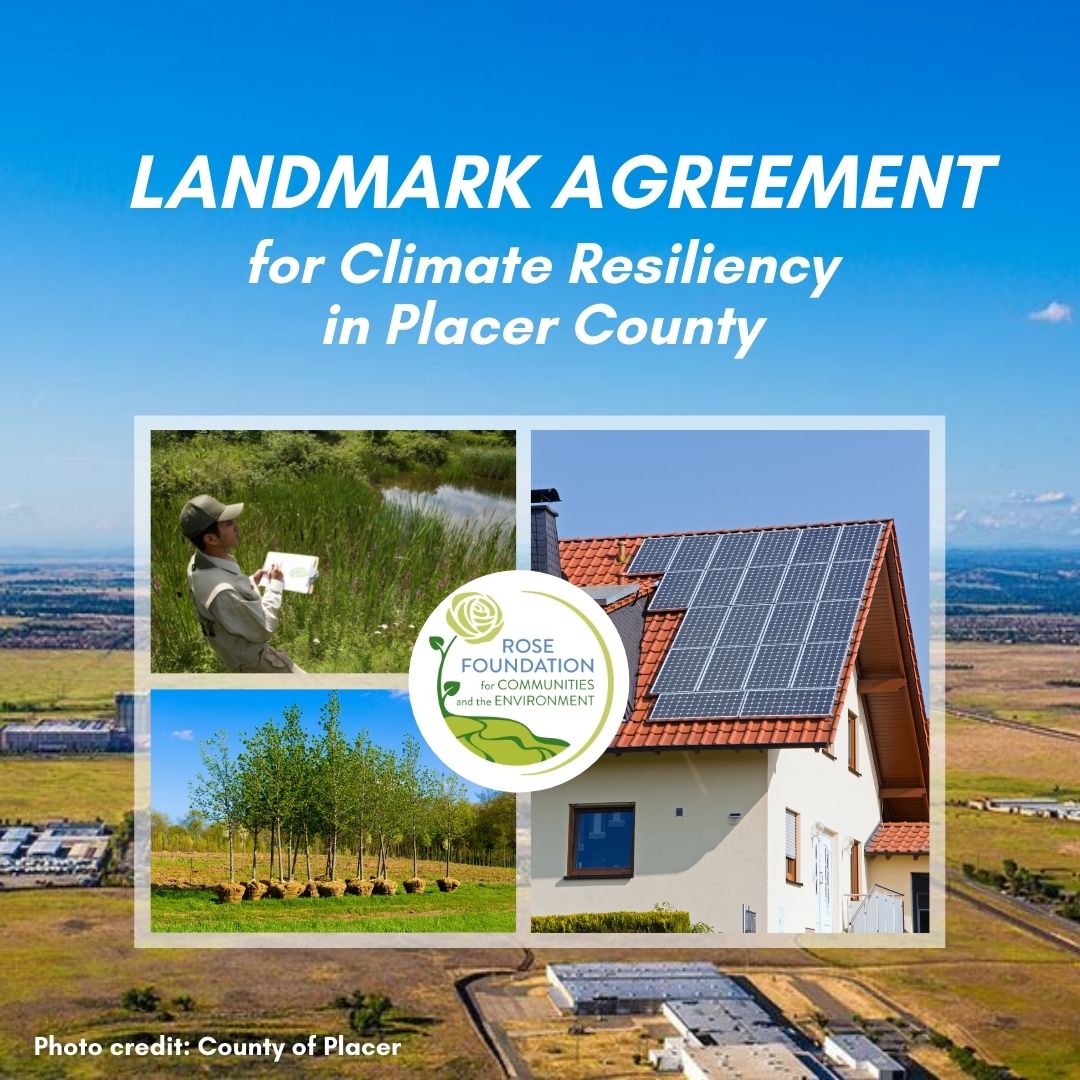Ushering in a Climate Resilient Future
Written by Communications Intern Micaela Wu

The Rose Foundation has been entrusted to manage $3 million in funding to support climate mitigation and conservation efforts in Placer County.
This funding comes to us thanks to national nonprofit Center for Biological Diversity’s work in Placer County. The Center has reached an agreement with developer Placer Ranch, Inc. to implement climate mitigation measures into its Placer County development project and provide funding for local conservation and climate resilience projects. These measures include reducing greenhouse gas emissions, installing electric vehicle charging stations, creating access to zero-emission transit vehicles, and protecting local wildlife and habitats from the impacts of the development. This landmark agreement paves the way for a greener future for this important gateway to Tahoe and the Sierras, and provides a blueprint for developers and decision makers across California on how to manage development in ways that ensure the safety of our communities and the environment as we build a climate-resilient future.
With this funding, the Rose Foundation will empower community-driven programs to bolster climate resiliency efforts on multiple fronts, from investing in renewable energy, to wildlife research, and other conservation projects. “Crucial on-the-ground conservation, plus green energy, and boosting public transit – this is what solving global warming looks like on the ground,” said Rose Founder and Executive Director Tim Little. He continued, “It is a win for Placer County, and for the whole planet.” We are looking forward to sharing more information about this climate resilience initiative in the coming months. Learn more about the agreement from the Center for Biological Diversity.
This funding initiative is one of many restitution funds we oversee here at the Rose Foundation. For many years, we have been recognized by state and federal courts for our critical role as a bridge that directs funds generated to mitigate pollution harms toward community-driven solutions. In close harmony with the requirements of the specific settlements, we channel these restitution funds directly into community-based groups across the country that are repairing the harms done to our communities and the environment. Check out our most recent Restitutions Report to learn more about the impact of these funds.